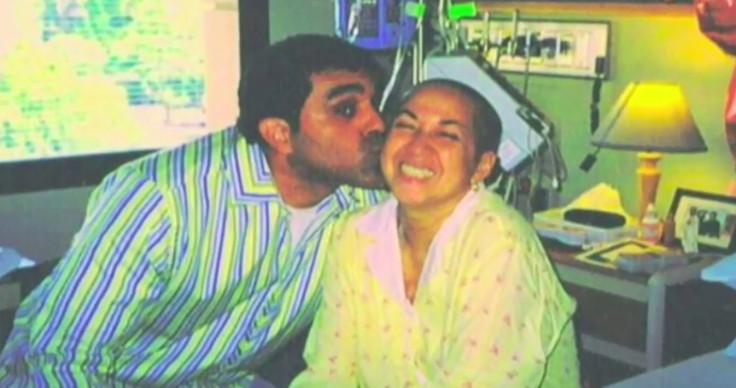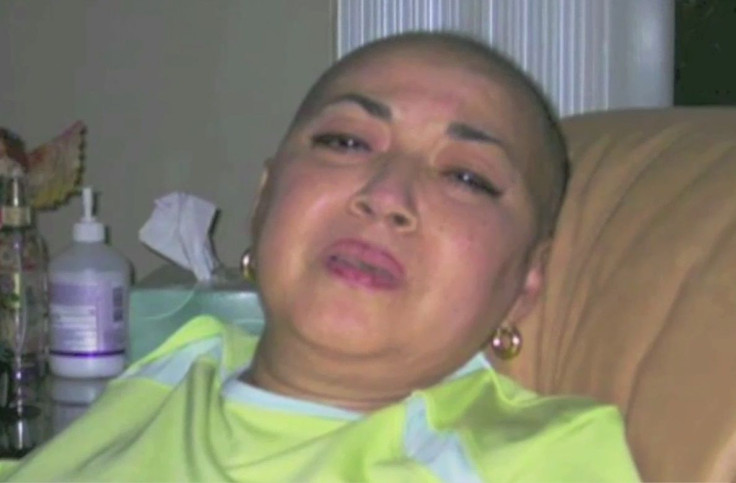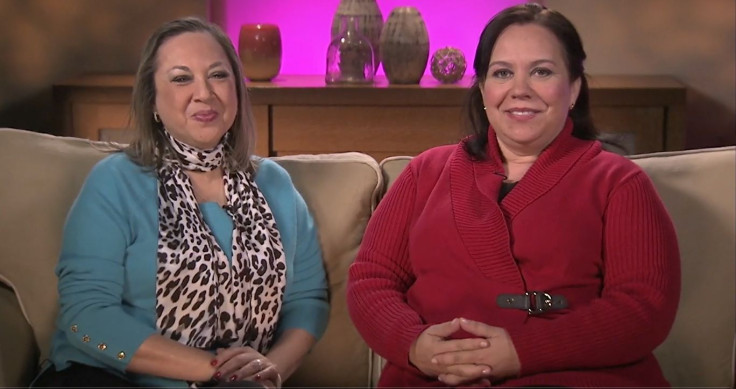
Monica Alvarado had no hope when she was diagnosed with acute myelogenous leukemia on March 9, 2004. “I immediately thought I was going to die,” she recalled solemnly. Her family is no stranger to blood cancer. Five years prior to her own diagnosis, her brother, Angel, lost his 2-year-old son to acute lymphoblastic leukemia. “So, we knew,” she said. “When the doctor said I had leukemia, I knew exactly what I was in for.” But Alvarado’s doctor encouraged her. “He said, ‘We have to get you to treatment immediately.’” That same evening Alvarado started chemotherapy.
Leukemia is a type of blood cancer. It is the 10th most common type of cancer. Every four minutes a new person is diagnosed with blood cancer and every 10 minutes a person dies. Hispanics are particularly at risk. In children and teenagers under the age of 20, leukemia rates are highest among Hispanics. Another type of blood cancer, non-Hodgkin lymphoma, is the fifth most common cancer in Hispanics. Among women, Hispanics have the second highest incidence rates of being diagnosed with non-Hodgkin lymphoma after whites.

It was after the first round of chemotherapy that a friend suggested Alvarado contact the Leukemia and Lymphoma Society, commonly known as LLS by those who are familiar with it. With her family, Alvarado started attending support groups with other families dealing with their diagnoses, survivors, as well as doctors. She was also able to get some financial support through a LLS program. Alvarado said it was the best decision to get in touch with LLS. “They were so helpful from the beginning, so caring and so understanding of my situation.”
The main objective of LLS is to find a cure for blood cancers. However they also educate the public and support patients emotionally and financially. Many of their services are specifically geared towards the Hispanic community. They have a Spanish website and call center with both English and Spanish operators, as well as 61 chapters all across the United States.
The 53-year-old Miramar, Fla., resident, Alvarado, moved to the United States from Colombia in 1971. She was in her 40s when she was diagnosed. “I went through two rounds of chemotherapy, but the type of leukemia that I had was so aggressive that the doctor felt that within a year I would relapse. He recommended that I undergo the bone marrow transplant.” Both of Alvarado’s siblings -- her sister and her brother -- were tested to see if either would be a match. Her sister as only a 50 percent match, but her brother Angel was a 100 percent compatible. “He become my donor and saved my life … my hero.”
Ten years after being diagnosed -- and now as a survivor -- Alvarado is still deeply involved with LLS. She participates in First Connection, a peer-to-peer program that matches newly diagnosed patients with trained volunteers who have been affected by a blood cancer, too. She is given a patient’s phone number and then she calls them up and to talk to them. Alvarado said she particularly enjoys when she is matched with a local patient because she can then go visit them in the hospital. “They see when I walk in that there is a survivor. There is a person who went through this but made it. It’s a great feeling.” The survivor has been involved with that program since 2006, two years after her bone marrow transplant.
Alvarado said she struggled particialarly as a Latina. "I was not well educated about the disease. Usually you feel it is a death sentence, but it’s not. It’s a challenge." The survivor said her involvement with LLS early on helped her to understand her disease and guide her through the process of treatment.

Emily Marquez-Dulin, Leukemia and Lymphoma Society Executive Director for southern Florida and Puerto Rico and south Florida resident, lost her own grandfather to leukemia. She said blood cancers are tricky because there are no screenings in place to determine if someone has the disease. “That’s the challenge. The challenge is how do we get more people to be aware of leukemia and lymphoma and other blood cancers so that they can get the right care sooner, rather than later.”
Marquez-Dulin said it is always best to be very aware of your own body. “ If you have some major bruising on your legs or your arms, something that doesn’t go away, or you back hurts a lot or you get a lot of headaches, something that’s not usual: Just be sure to discuss it with your doctor. Of course, what we want you to do is to go to your doctor every year for your yearly screening anyway. But you must be very aware of your own self. If you find anything that is usual, you need to be able to report it.”
Visit www.LLS.org or www.LLS.org/espanol for more information or call 1-800-955-4572.
© 2025 Latin Times. All rights reserved. Do not reproduce without permission.




